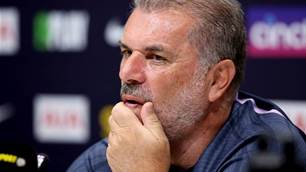Sir Alex Ferguson told today how a youth leader inspired him in his early years, driving him to build one of the greatest careers in the history of modern football.
The Manchester United manager spoke of his time as a youngster in the 129 Glasgow Company of the Boys' Brigade, and the influence of team manager Johnny Boreland.
Sir Alex was in the BB between the ages of nine and 16, and joined the football team aged 12.
There he found a determined coach in the form of Mr Boreland.
"Johnny was an absolute fanatic for the game," Sir Alex said in an interview with Life And Work, the Church of Scotland magazine.
"When we went to camp in places like Stonehaven we were given a list of everything we had to bring with us, and at the bottom in big capital letters, he'd put 'AND FOOTBALL BOOTS'.
"As soon as we arrived, it would be 'Right, everybody, get your football boots on'."
He went on: "Johnny gave us a leg-up and developed this great enthusiasm in us all. We won the Battalion Cup in a two-leg final in 1950.
"I still keep in touch with Johnny. He's a marvellous man, absolutely marvellous."
As he got to around 16, Sir Alex began to drift away from the Boys' Brigade, but he remains convinced of the group's long-lasting influence on his life.
He said: "That spell from nine to 16 was a very important part of my life.
"It gave us discipline and confidence, and trust in the relationships we developed with the officers."
Sir Alex, who has led Manchester United to nine League Championships in his 21 years as manager, also described how his working-class upbringing in the tough Govan area of Glasgow played an important role in his future success.
During his early years there in the 1940s and '50s, the area was dominated by the shipyards, where both his father and brother worked.
He recalled a life in which a lack of material possessions was made up for by a strong family and community spirit.
"It was a place where you could leave your door open and people would come in, borrow something they needed and leave a note."
And he credits his parents in particular with giving him a drive to improve himself, and an awareness of the importance of education.
Sir Alex still has strong roots, keeping in touch with many friends from Glasgow.
His last house, Fairfields, was named after the shipyard where his father and brother worked, and one of his race horses is named Broomielaw after the Glasgow harbour.
Sir Alex was in the BB between the ages of nine and 16, and joined the football team aged 12.
There he found a determined coach in the form of Mr Boreland.
"Johnny was an absolute fanatic for the game," Sir Alex said in an interview with Life And Work, the Church of Scotland magazine.
"When we went to camp in places like Stonehaven we were given a list of everything we had to bring with us, and at the bottom in big capital letters, he'd put 'AND FOOTBALL BOOTS'.
"As soon as we arrived, it would be 'Right, everybody, get your football boots on'."
He went on: "Johnny gave us a leg-up and developed this great enthusiasm in us all. We won the Battalion Cup in a two-leg final in 1950.
"I still keep in touch with Johnny. He's a marvellous man, absolutely marvellous."
As he got to around 16, Sir Alex began to drift away from the Boys' Brigade, but he remains convinced of the group's long-lasting influence on his life.
He said: "That spell from nine to 16 was a very important part of my life.
"It gave us discipline and confidence, and trust in the relationships we developed with the officers."
Sir Alex, who has led Manchester United to nine League Championships in his 21 years as manager, also described how his working-class upbringing in the tough Govan area of Glasgow played an important role in his future success.
During his early years there in the 1940s and '50s, the area was dominated by the shipyards, where both his father and brother worked.
He recalled a life in which a lack of material possessions was made up for by a strong family and community spirit.
"It was a place where you could leave your door open and people would come in, borrow something they needed and leave a note."
And he credits his parents in particular with giving him a drive to improve himself, and an awareness of the importance of education.
Sir Alex still has strong roots, keeping in touch with many friends from Glasgow.
His last house, Fairfields, was named after the shipyard where his father and brother worked, and one of his race horses is named Broomielaw after the Glasgow harbour.
Copyright (c) Press Association
Related Articles

Postecoglou looking to A-League to 'develop young talent'
.jpeg&h=172&w=306&c=1&s=1)
Big change set to give Socceroos star new lease on life in the EPL













